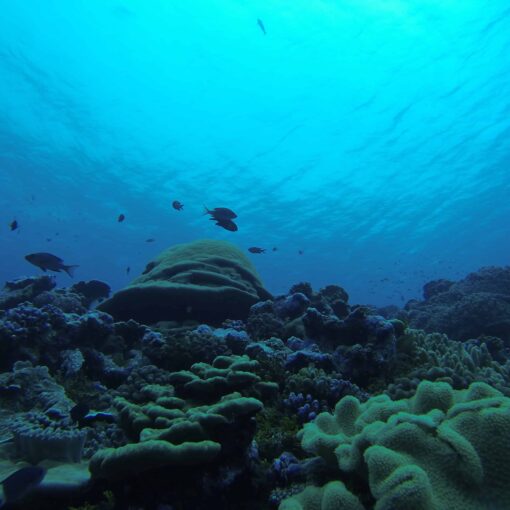Q REPORTS (DW.com) Amon Kipruto Mely, 22 years old, thought that selling one of his kidneys, he could start a better life. One day, a friend told her about a quick and easy way to earn US$6,000 dollars (5,300 euros).
“I told myself that selling my kidney would be a good deal,” said Amon. What sounded like a lucky break led him to fall into a dark network of exploitation, based on desperation.
This report is the result of a collaborative investigation that lasted months, conducted by German media outlets Der Spiegel, ZDF and DW, which together tracked organ sellers and buyers, analyzed documents, spoke with whistleblowers and medical professionals, and uncovered how an international network—ranging from a hospital in Kenya to a shady agency luring organ recipients from Germany—exploits vulnerable people at both ends: the young, desperate for money, and the elderly, desperate for a life-saving organ.
– Advertisement –
Amon Kipruto Mely was introduced to a middleman who arranged transportation to Mediheal Hospital in the town of Eldoret, western Kenya. There, Amon says he was greeted by Indian doctors who handed documents in English, a language he didn’t understand.
An organization that preys on the young and poor
They didn’t inform him of any health risks, Amon said. “They didn’t explain anything to me. The guy who drove me pointed at the people around us and said, ‘Look, everyone donated, and you’re even going back to work.’”
After the operation, he was paid only US$4,000 instead of the US$6,000 he had been promised. With that money, he bought a phone and a car, which quickly broke down. Soon, his health worsened. He felt dizzy and weak, and even fainted. At the hospital, his mother, Leah Metto, was shocked to discover that her son had sold a kidney.
“They’re making money off of kids like Amon,” she said.
But Amon’s story appears to be one of many. Willis Okumu, an organized crime investigator at the Nairobi Institute for Security Studies, spoke with several young men who told him they had sold their kidneys in the town of Oyugis, 180 kilometers southeast of Eldoret.
– Advertisement –
“This is indeed organized crime,” he said. Okumu estimates that up to 100 young men in Oyugis alone may have sold their kidneys; many of them suffer from health problems, including depression and psychological trauma. “I don’t think they’ll even see their 60th birthday,” added Okumu, whose work on the subject was published in January 2018 in Enact, a project implemented by Interpol.
DW spoke with four young men from Oyugis who say they sold their kidneys for as little as US$2,000. They recounted how, after their surgery at Mediheal Hospital in Eldoret, the middlemen asked them to recruit new donors for a commission of US$400 each.
A Chain of Exploitation
“This organization is exploiting a legal gray area,” Okumu explained. “There is no law against donating a kidney for money, and it is not penalized,” he said, referring to information he received from a police unit against transnational organized crime.
– Advertisement –
What is permitted, according to Kenyan law, is organ donation to relatives for altruistic reasons.
Speaking to DW on condition of anonymity, a former Mediheal Hospital employee revealed that the buying and selling of organs for transplants began many years ago. Initially, recipients came from Somalia and donors from Kenya. But then, in 2022, recipients began arriving from Israel, and starting in 2024, from Germany. Donors for these high-paying clients come from countries such as Azerbaijan, Kazakhstan, and Pakistan.
The source said donors were asked to sign documents declaring they were relatives of recipients, whom they had never met, and consenting to the removal of a kidney, without being informed of the potential health risks. Some of them were even minors. “Because of the language barrier, they just sign,” said the former hospital employee.
Israel and Germany, More Lucrative Markets
Since switching from Somali to Israeli and German recipients, business has boomed, he added, with each recipient paying up to US$200,000 for a kidney, a figure corroborated by multiple sources.
The former hospital employee told DW that an agency called “MedLead” was in charge of recruiting international donors and recipients. On its website, MedLead says it provides donated kidneys within 30 days “in accordance with the organ donation law” and promises that the donations are “100% altruistic.”
A recent video on the website shows Sabine Fischer-Kugler, a 57-year-old German woman from Gunzenhausen, who has suffered from kidney disease for 40 years. After her first transplanted kidney stopped working, she was desperately searching for another. But the waiting list for a new kidney in Germany is long; it can last eight to ten years.
In Germany, only kidneys from deceased people who expressly agreed to organ donation can be used for transplants, and there are not enough donors for the more than 10,000 people waiting for a kidney.
Organ Donation Shortage Prompts Search for Donors Abroad
Sabine Fischer-Kugler only briefly met her donor, a 24-year-old man from Azerbaijan. The contract stipulated that she would not be paid, although Fischer-Kugler claimed to have paid MedLead between US$100,000 and US$200,000. “Maybe I’m a little selfish because I wanted this kidney, and most importantly, the contract seemed to be fine. But it’s clear. The operation isn’t as clean as it seems.”
Under German law, paying for an organ is illegal, and violators can face up to five years in prison.
The man behind MedLead is an Israeli citizen named Robert Shpolanski, who, according to a 2016 indictment from the Tel Aviv Magistrates’ Court, has been accused of having performed “a large number of illegal kidney transplants” in Sri Lanka, Turkey, the Philippines, and Thailand, along with a man named Boris Wolfman, who allegedly ran the criminal network. Wolfman was accused of having previously participated in illegal transplant activities elsewhere.
“You’re not supposed to pay, but you pay.”
Shpolanski denies any connection to Wolfman. In an email to Der Spiegel, ZDF, and DW, MedLead stated that it is not involved in the search for donors, that all donors are 100% altruistic, and that MedLead has operated transparently and in full compliance with the law since its founding.
The team of investigative journalists went undercover at the Eka Hotel in Eldoret, a few kilometers from Mediheal Hospital, to speak with foreign patients awaiting transplants. Some appeared extremely fragile and were accompanied by family members. A 72-year-old Israeli undergoing dialysis at Mediheal Hospital commented: “It’s a bit suspicious. You’re not supposed to pay, but you do. The story is that it’s a cousin of mine who somehow arrived in East Africa at the same time as me.” At his age, he said, he would have no chance of receiving a kidney in Israel.
Back in Nairobi, Dr. Jonathan Wala, director of the Kenya Kidney Association, has treated several patients who returned with post-surgical complications. “We have reports of Israeli patients returning with severe infections, some with practically dead kidneys.” His colleagues alerted Kenyan authorities to the unethical transplants being performed at Mediheal Hospital.
A multi-million-dollar business protected from the “top”
In 2023, Kenya’s health minister commissioned an investigation into Mediheal Hospital and found that donors and recipients were often not related. Some high-risk transplants were performed, such as on cancer patients or the very elderly. Nearly all procedures were paid for in cash. The report recommended that “the allegation of organ trafficking be investigated by the relevant authorities.” Despite these alarming findings, the report was never made public, and no action was taken.
A local private investigator in Eldoret, who has tracked the illegal transplant trade, claims that at least two other hospitals are also involved. But, he said, “if I were to investigate these cases, my life would be in danger. There are very powerful people who could be involved.” Does it reach the highest levels of government? “Yes,” he replied.
The founder and chairman of the Mediheal Group is Swarup Mishra, a former Indian MP, who is said to have good relations with Kenyan President William Ruto. Despite persistent accusations of organ trafficking, the president appointed him director of Kenya’s state-owned BioVax Vaccine Institute last November, a position that allows him to represent Kenya as a contact person with the World Health Organization and foreign government officials. Mishra did not respond to repeated interview requests and left a list of questions unanswered.
Meanwhile, Amon and others like him struggle to survive with only one kidney, their health compromised and their hopes dashed: “If I could go back in time, I wouldn’t have agreed to have my kidney removed. I hate myself for that.”
Source: https://www.dw.com/
– Advertisement –
Source link
Q Costa Rica



